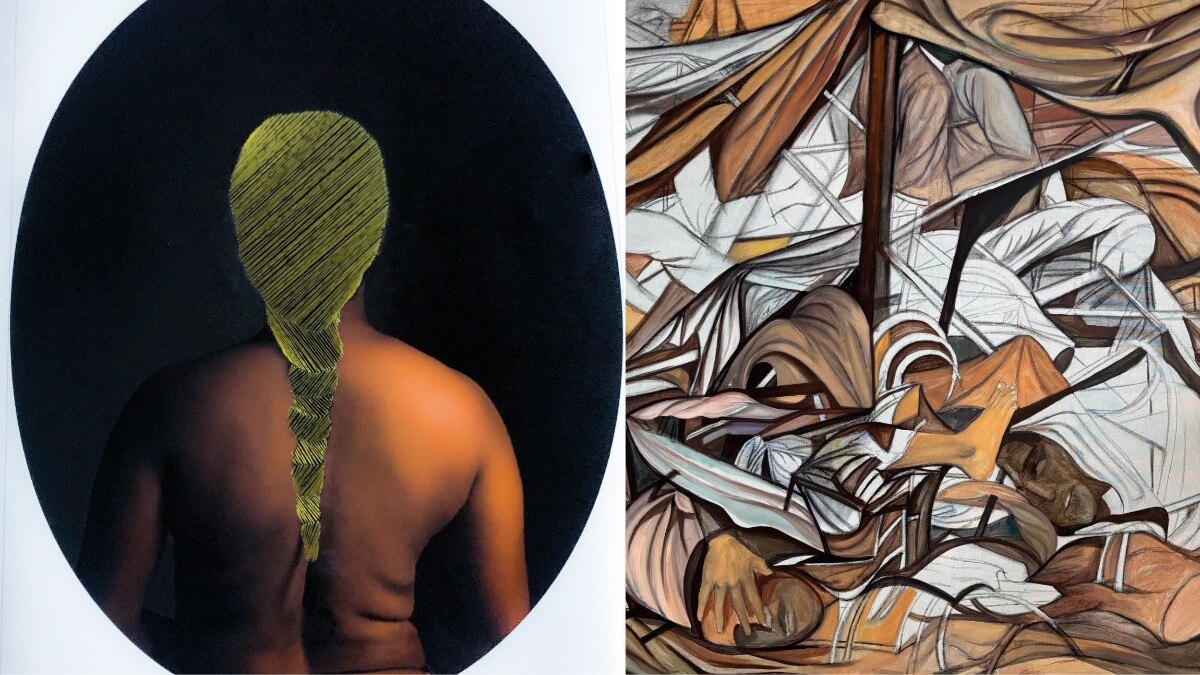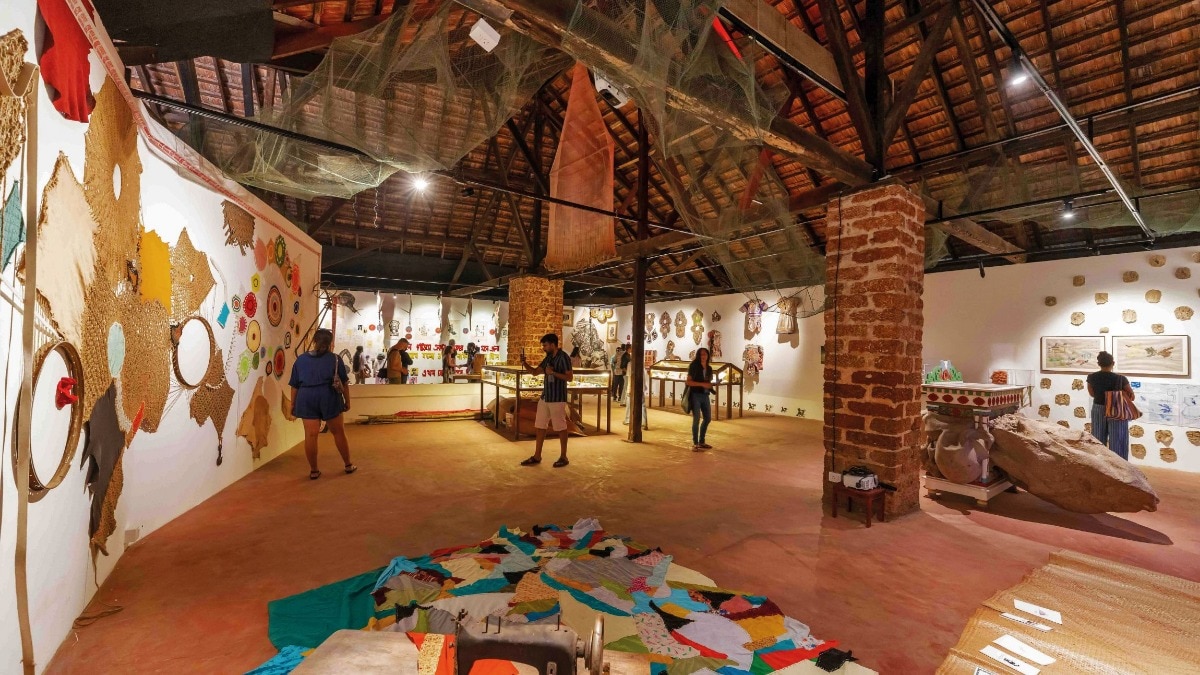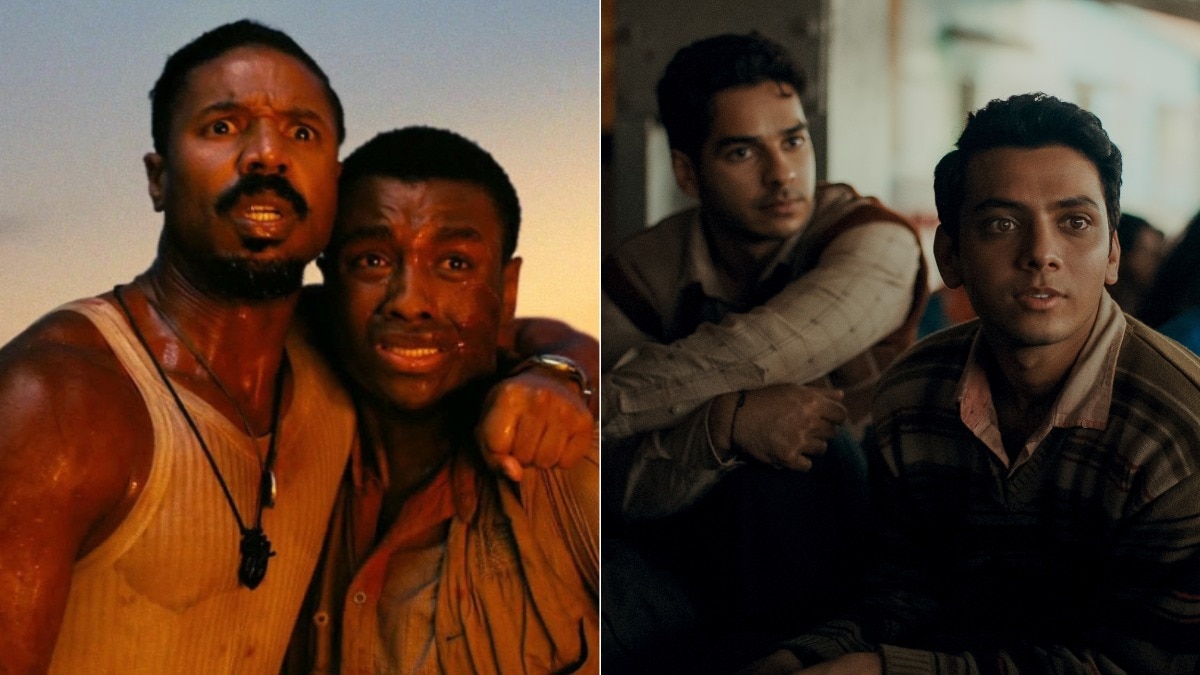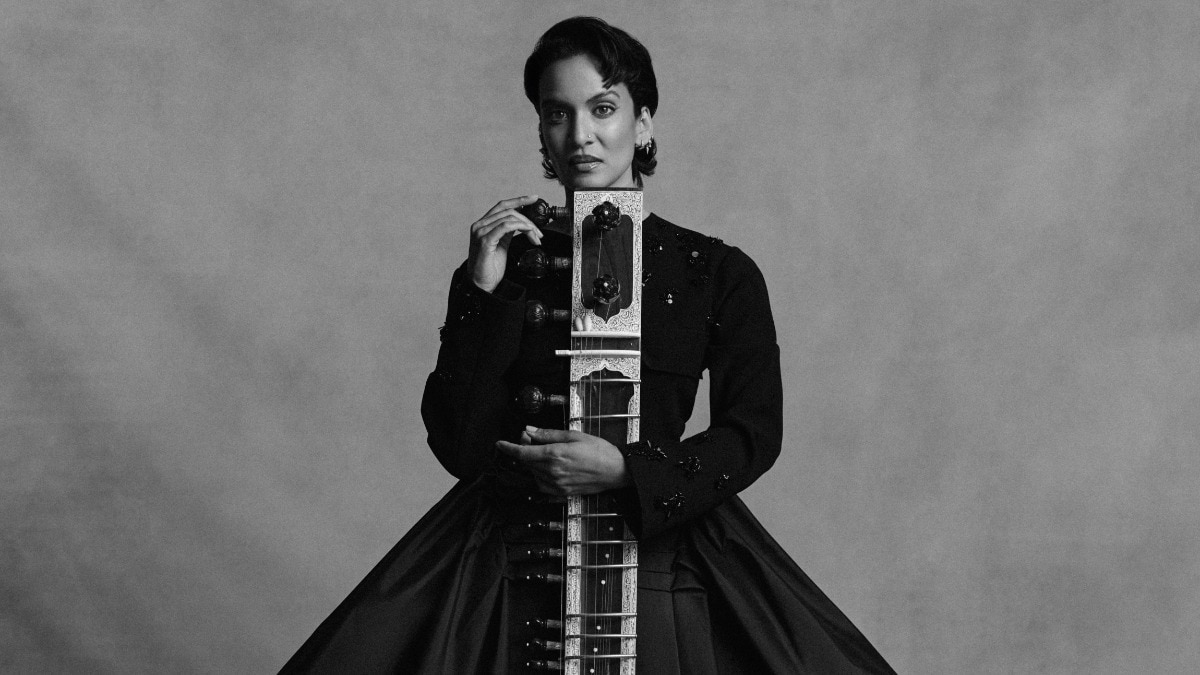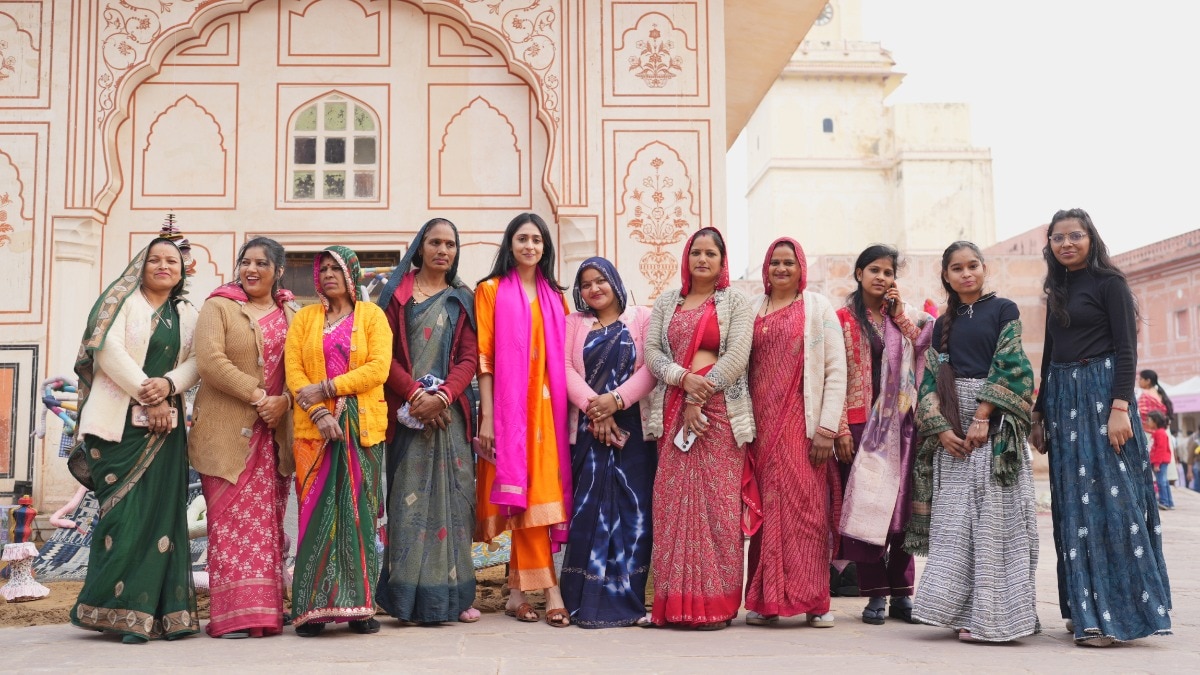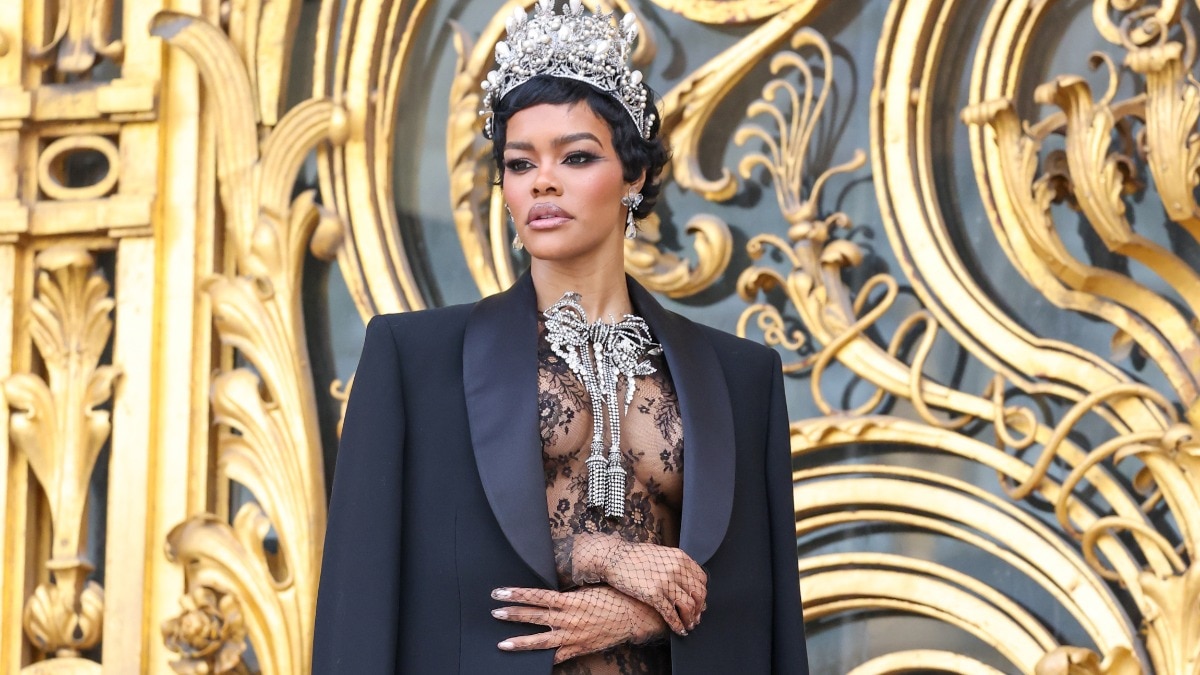NASA’s Christina Koch on becoming the first woman on a moon mission and the perspective space has given her
"Seeing the thin blue line of the atmosphere really makes you recognise that we are much more similar than we are different."

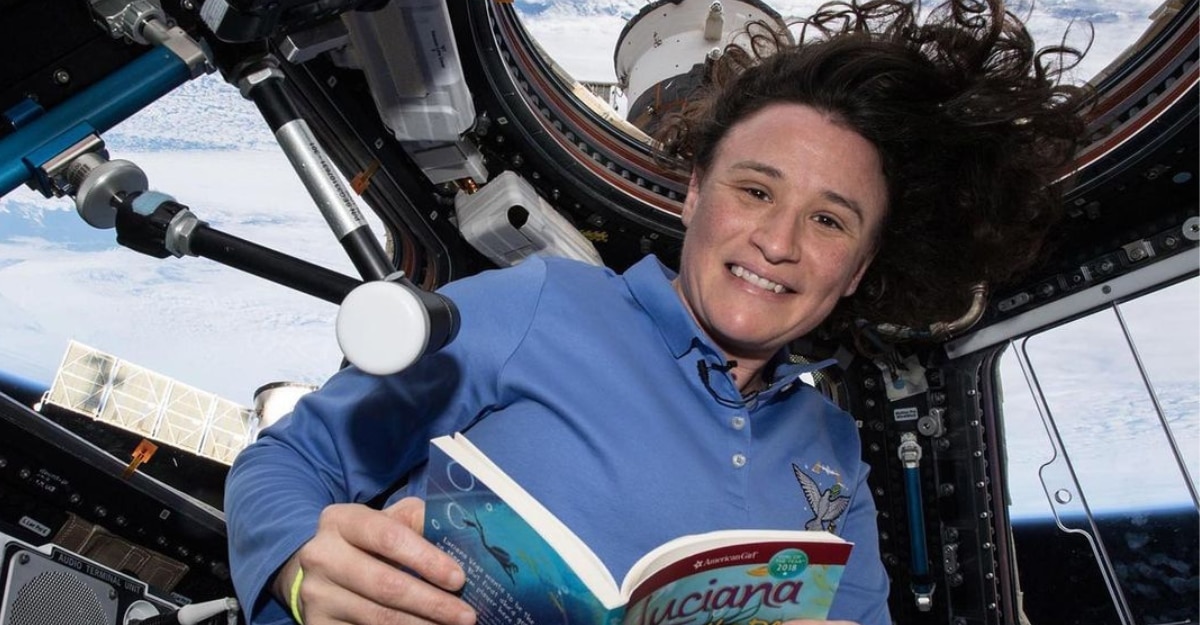
For the first time in history, a woman and a man of colour will fly to the moon with NASA.
The organisation this week announced its team for its upcoming lunar mission, celebrating the record-breaking lineup and acknowledging NASA's pledge for diversity and representation—on Earth and in space.
The team is composed of Reid Wiseman, the mission's commander; Christina Koch, who holds the world record for the longest spaceflight by a woman and will soon be the first on a moon mission; Victor Glover, an African-American naval aviator; and Jeremy Hansen, a Canadian former fighter pilot.
The journey—the first in more than 50 years—is set to take place in late 2024. (A practice run with an empty capsule was launched last year.) The team of four will be the first to fly NASA's Orion capsule, and the first crew in NASA's new moon programme, Artemis.
The Orion will launch atop a Space Launch System rocket from Kennedy Space Center in Merritt Island, Florida. It will not land on the moon or go into lunar orbit, but rather fly around the moon and return to Earth. A lunar landing by two astronauts is set to take place a year later.
Glover's presence on the team is a much-awaited move toward cultural diversity in the space field. According to NASA stats, only 11.83 percent of the workforce is Black, 5.79 percent Latino, and 6.25 percent Asian, while 74.60 percent is White. Of the total workforce, 35.52 percent are women and 1.17 percent have a disability.
Koch's presence on the team, meanwhile, is a big step toward gender equality in the workplace and a huge milestone for NASA, which since its inception has selected only 61 women from its 360 astronaut candidates. And as the company's Artemis programme rolls out, more progress may follow, with a potential for a woman to finally walk on the moon. (As of now, 12 men and no women have stepped foot on the moon.)
Ahead of the historic journey, Bazaar.com sits down for a conversation with Christina Koch. The veteran astronaut shares her thoughts on becoming the first woman on a lunar mission, her excitement about getting back out into space, and her advice for women hoping to get into the historically male-led field.
You already broke one record for the longest spaceflight flown by a woman. How does it feel to be breaking another?
You know, for me, when I think about records, I don't think about any individual achievement. I think about the value in it to inspire and to give people a look at what is state-of-the-art right now in our exploration.
My feeling about records is it's not how many days you spend in space, it's not where you go; it's what you do with that time. And that was always my goal on the International Space Station.
My desire for records is always for them to be broken as soon as possible, because that means we're continuing to push the frontiers.
Why has it taken this long for women to get out there in space? Why are you the first on a moon mission?
Well, as you know, the last moon missions were over five decades ago, and it was a very different time. But I'm happy to say that long ago, NASA made the decision that it was important to represent all of humanity when we answer humanity's call to explore. And now, the astronaut core looks like all of humanity. So it was pretty clear that no matter what kind of crew you picked for this mission, it was gonna have that characteristic—and I'm happy to say that it does.
We understand that the best way to be successful is to make sure that everyone with a contribution and a talent is part of the team.
How many times have you been to space?
This will be my second space flight. My first was an 11-month stay on the International Space Station.
That is a very long time. What is the feeling that you get in space? Does it put things into perspective?
Absolutely. Having the honour of looking back at the Earth from space gives you a perspective that no other experience that I've had can do—seeing the Earth as it appears in the vastness of the universe.
Seeing the thin blue line of the atmosphere really makes you recognise that we are much more similar than we are different, that we all rely on the same things to keep us alive and happy, and that all of the lines, boundaries, delineations we make as humans are self-made and don't exist in any absolute sense.
The Earth is one place where we're all united as one humanity.
That's beautiful. Was it always your dream to be an astronaut?
It has always been my dream for as long as I can remember; I told my kindergarten teachers and I told my college professors that I wanted to be an astronaut.
What would you say to other women wanting to enter the field?
I think my message to other women is the same as my message to anyone who's pursuing a dream: Follow your passions to make sure that when you look at your life and you map it out and you're at those big crossroads, you're picking the path that really feels true to what you love.
Also, do what scares you; don't shy away from the things that you think might be out of reach. The way that you can get the most fulfillment and contribute the most to the world is to go after those things, to run toward the things that scare you, and lift each other up, support the people around you. You will find that you can do a lot more than you ever thought you could.
I totally agree. Do you see more women in the field than when you started?
I do. As an electrical engineer and physics major in the '90s, I often found myself as one of only very few women in the classes that I took—and when I instructed and tutored those classes, I was even more of a rare species. Even in my early jobs in my career, I was often the only woman in our technical meetings. But honestly, I think that made me stronger.
It definitely presents challenges, which is why I think it's really important that we are now going for all and by all to change that balance, because that inherently brings down the barriers that people face when they are underrepresented in any field.
But I definitely see it increasing, and, of course, the research and numbers back that up.
I was definitely surprised to find out that you’ll be the first woman to go on a moon mission and with you will be the first person of color. It must be so exciting to be part of that.
It's absolutely exciting. I think the real thing to be excited about and to celebrate is that decision that we're going for all and by all; we know that's just as important as the technical aspects of this mission. And we recognise that to answer humanity's call to this floor, we have to take all of humanity on that journey.
Speaking of technical aspects, do you ever get nervous on the job? How do you stay calm or concentrated to do what you have to do?
Well, there's a saying in human space flight that astronauts are the calmest people on launch day. And I did not necessarily believe that was true until my own launch, and it was 100 per cent true. We are taught and learn to turn any kind of fear into focus. And that's actually not that difficult to do, because our training and our incredibly competent and amazing teams that design, operate, and control these vehicles give us so much confidence that there's not a lot of trepidation.
We know that our teams are experts at quantifying risk and taking those decisions and making sure that we only fly when we're ready to fly and when we know that it's going to be a safe mission that is worth the risks.
What are you most excited about on this mission?
I am most excited about the teamwork. I am most excited that this mission is the first time we're putting humans on board the Space Launch System rocket and the Orion spacecraft; we are going to find things that we don't even know we're going to find.
And we get to work with the teams to design a mission that is the most efficient it can be so that when Artemis III (NASA's first human mission to the lunar south pole) flies and we bring people to the surface of the moon in the future, those missions can be successful. The fact that we get to work through those bumps, figure it out as we go as a team, that is definitely what excites me the most.
This interview has been edited and condensed for clarity.
This piece originally appeared in Harper's Bazaar USA

